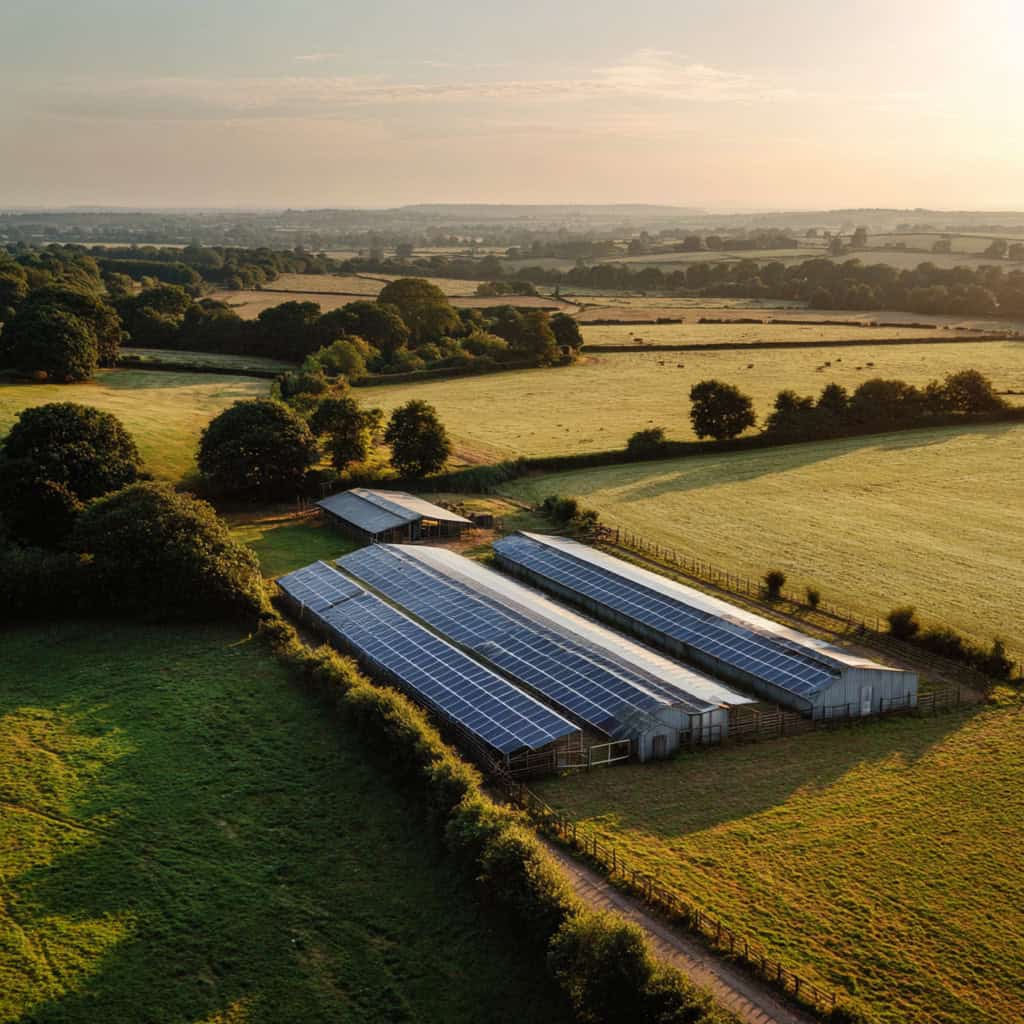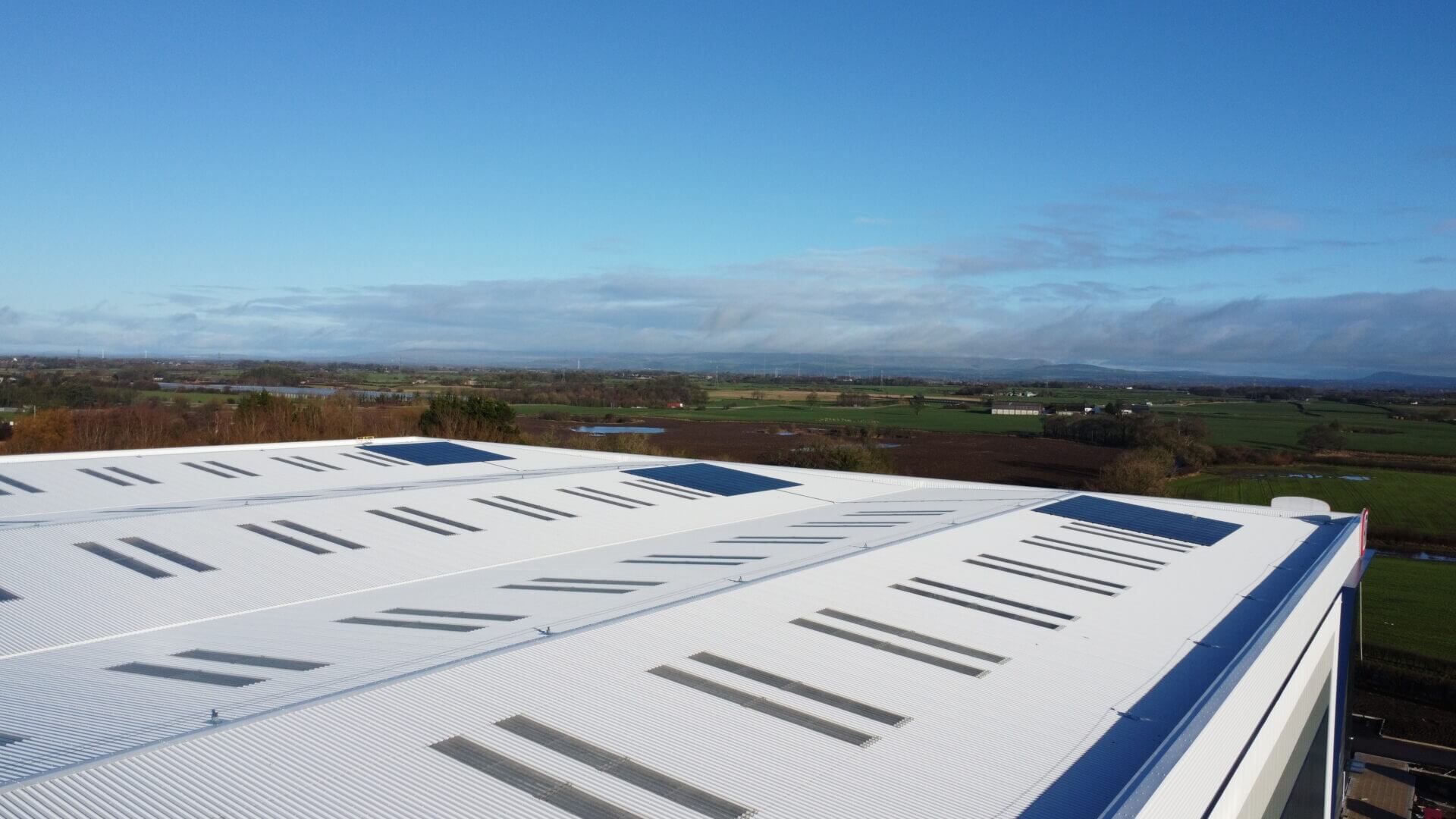Solar is powering the future of countryside businesses, the world’s countryside, resilience has always been the hallmark of rural life. Today, that resilience is being tested by rising energy costs, unreliable infrastructure, and the growing urgency of climate change. Yet in the midst of these challenges, rural enterprises are discovering a powerful ally: solar energy.
What began as a sustainability initiative has become a strategic business move. Solar power is helping farms, food processors, workshops, and rural hospitality businesses. It cuts costs and provides energy independence. This prepares them for an uncertain future.
The Energy Dilemma In Rural Areas
For decades, rural businesses have operated under unique constraints:
- Unstable supply: Long grid connections are prone to blackouts, and repairs often take far longer than in urban centres.
- High costs: Energy tariffs in remote regions can be disproportionately expensive, eating into already narrow margins.
- Diesel dependency: Generators used to be backups, but rising fuel prices and emissions rules have made them a burden.
The result is a constant tension between productivity and vulnerability. Solar energy offers a solution to this problem. It allows rural businesses to produce their own electricity in a reliable and affordable way.

Lowering Costs, Raising Margins
For most rural enterprises, energy is not a luxury, it is a lifeline. Pumps irrigate crops, refrigerators keep food fresh, and machinery drives production. But energy bills often strain profits.
Solar changes the equation. After installation, panels provide decades of low-cost power, while batteries extend usage into the night and during cloudy spells.
- In agriculture: Farms are running irrigation systems and cold storage on solar, reducing waste and saving thousands annually.
- In processing: Mills and workshops shift peak production into daylight hours, lowering their dependence on expensive grid power.
- In hospitality: Eco-lodges and guesthouses attract sustainability-minded tourists while slashing operating costs.
The payoff is twofold: smaller energy bills today and stronger margins for reinvestment tomorrow.

Energy Security As Business Insurance
For a rural enterprise, an unexpected blackout can be devastating. A dairy farm risks spoiled milk, a grain mill halts production, and a rural clinic faces equipment failure.
Solar, particularly when combined with modern battery storage, provides a form of business insurance:
- Operations continue during grid outages.
- Critical equipment remains powered at all times.
- Enterprises reduce exposure to fuel shortages or price spikes.
In regions prone to storms, droughts, or heatwaves, solar systems make businesses more resilient, not only economically, but also environmentally.
Building A Greener And More Competitive Future
Sustainability is increasingly shaping markets. Export partners, regulators, and consumers expect businesses to demonstrate a low-carbon footprint. For rural enterprises, solar power is not just about survival, it’s about competitiveness.
- Compliance: Many global buyers now require emissions reporting, making solar adoption a business necessity.
- Brand value: Consumers are rewarding companies that invest in green practices.
- Policy support: Subsidies, tax incentives, and carbon credits are accelerating adoption, particularly in the agricultural sector.
Solar adoption helps rural businesses secure new markets and partnerships, while aligning with national and global climate goals.
Strengthening Rural Communities
The benefits of solar don’t stop at the business gate. Rural communities as a whole see ripple effects:
- Jobs: Installation, servicing, and monitoring of solar systems create skilled local employment.
- Shared projects: Community solar farms allow villages to pool resources for collective benefit.
- Local resilience: More self-reliant businesses strengthen regional economies, keeping money circulating locally.
By powering themselves sustainably, rural enterprises also power opportunity for their neighbour’s.
The Road Ahead: Innovation And Opportunity
Solar technology is evolving rapidly, and rural businesses are well positioned to take advantage of the next wave of innovation:
- Smarter systems: Digital monitoring tools optimise energy use and reduce waste.
- Advanced storage: Breakthroughs in batteries will make 24/7 off-grid operation even more affordable.
- Agrivoltaics: Dual-use systems that combine solar panels with crop production are helping farmers increase land efficiency.
These advancements signal that the countryside is not lagging behind urban centres, it is leading the way in decentralised, sustainable energy.

Conclusion: A Brighter Countryside
Solar energy is proving to be far more than a green alternative. For rural businesses, it is a tool for resilience, a driver of profitability, and a shield against uncertainty.
By using solar energy, rural businesses are saving money and ensuring a steady supply. They are also creating a new story for rural economies. This story is about being innovative, competitive, and sustainable.

